Mary Jo Speaks
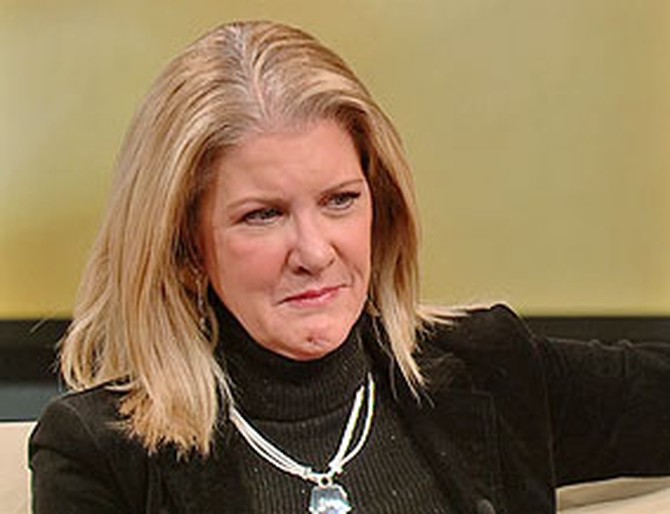
In 1992, everyone was riveted by the story of the "Long Island Lolita." Amy Fisher, a 16-year-old girl, stood accused of shooting her lover's wife, Mary Jo Buttafuoco. The bullet just missed Mary Jo's brain and lodged an inch from her spinal cord. Two weeks later, Mary Jo identified Amy as the shooter.
When Amy was arrested she told police of her affair with Mary Jo's husband, Joey. Joey adamantly denied the affair, and Mary Jo stood by her husband. Amy pled guilty to reckless assault and was sentenced to 15 years in prison.
With Amy behind bars, the prosecution turned their attention on Joey, trying him on charges of statutory rape. Even still, Mary Jo supported Joey. Joey pled guilty to one count of statutory rape and was sentenced to six months in the county jail. In 1995, Joey pled no contest to soliciting sex from an undercover policewoman. It wasn't until 2003 that Mary Jo and Joey divorced after 26 years of marriage.
After an early release from prison—due in part to Mary Jo's plea for leniency—Amy stayed out of the public eye. In 2004, Amy gave us an exclusive interview about what she says happened the day she shot Mary Jo.
Mary Jo was at home watching our show that day. She says she was outraged by what Amy said, and now she wants to set the record straight.
When Amy was arrested she told police of her affair with Mary Jo's husband, Joey. Joey adamantly denied the affair, and Mary Jo stood by her husband. Amy pled guilty to reckless assault and was sentenced to 15 years in prison.
With Amy behind bars, the prosecution turned their attention on Joey, trying him on charges of statutory rape. Even still, Mary Jo supported Joey. Joey pled guilty to one count of statutory rape and was sentenced to six months in the county jail. In 1995, Joey pled no contest to soliciting sex from an undercover policewoman. It wasn't until 2003 that Mary Jo and Joey divorced after 26 years of marriage.
After an early release from prison—due in part to Mary Jo's plea for leniency—Amy stayed out of the public eye. In 2004, Amy gave us an exclusive interview about what she says happened the day she shot Mary Jo.
Mary Jo was at home watching our show that day. She says she was outraged by what Amy said, and now she wants to set the record straight.
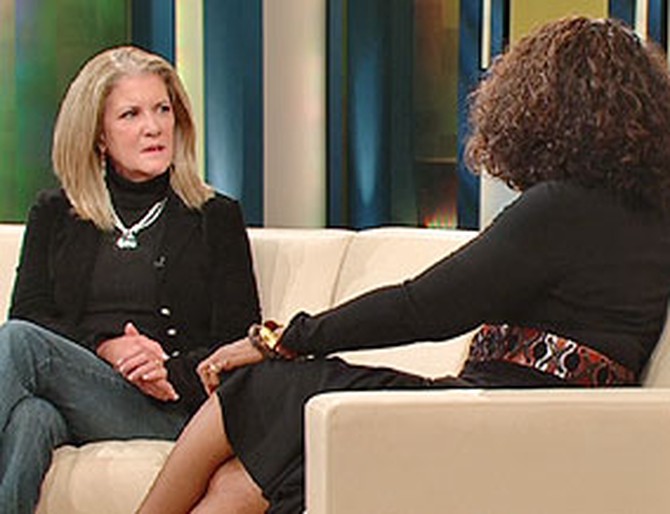
Mary Jo says she remembers quite vividly the moments leading up to the life-changing shooting. It was the middle of the day, and Mary Jo was in her backyard painting benches while her kids were in school. The doorbell rang, and Mary Jo could see Amy—who she did not know—standing at the door.
"I put my brush down and I walked toward the door, but I was still wearing my gloves. I had a little jacket on because it was a little breezy in the backyard," Mary Jo says. "She said, 'Are you Mrs. Buttafuoco?' And I said, 'Yeah.'"
Mary Jo says Amy then said she needed to speak with her about her husband. Mary Jo figured that it had something to do with a car, since Joey was a popular auto mechanic in town. She then stepped outside onto the front stoop to speak with Amy. Mary Jo says Amy then told her, "'Your husband's having an affair with my little sister.' I kind of looked back and asked, 'How old are you, 12?' I couldn't believe it."
As Mary Jo continued asking questions of Amy, she says she felt Amy was obviously lying. Mary Jo decided to end their conversation after approximately three minutes.
"I wasn't frightened," Mary Jo says about turning away from Amy. "I didn't feel that I had fear that something was going to happen. I'm in my own house, it's broad daylight, cars are driving back and forth, she's smaller than me."
When Mary Jo turned around to head back inside, Amy shot her in the side of the head. Only Mary Jo had no idea that she'd been shot. "I thought she hit me with a baseball bat," she says. "My thought [before going unconscious] was, 'Where did she get the bat?'"
"I put my brush down and I walked toward the door, but I was still wearing my gloves. I had a little jacket on because it was a little breezy in the backyard," Mary Jo says. "She said, 'Are you Mrs. Buttafuoco?' And I said, 'Yeah.'"
Mary Jo says Amy then said she needed to speak with her about her husband. Mary Jo figured that it had something to do with a car, since Joey was a popular auto mechanic in town. She then stepped outside onto the front stoop to speak with Amy. Mary Jo says Amy then told her, "'Your husband's having an affair with my little sister.' I kind of looked back and asked, 'How old are you, 12?' I couldn't believe it."
As Mary Jo continued asking questions of Amy, she says she felt Amy was obviously lying. Mary Jo decided to end their conversation after approximately three minutes.
"I wasn't frightened," Mary Jo says about turning away from Amy. "I didn't feel that I had fear that something was going to happen. I'm in my own house, it's broad daylight, cars are driving back and forth, she's smaller than me."
When Mary Jo turned around to head back inside, Amy shot her in the side of the head. Only Mary Jo had no idea that she'd been shot. "I thought she hit me with a baseball bat," she says. "My thought [before going unconscious] was, 'Where did she get the bat?'"
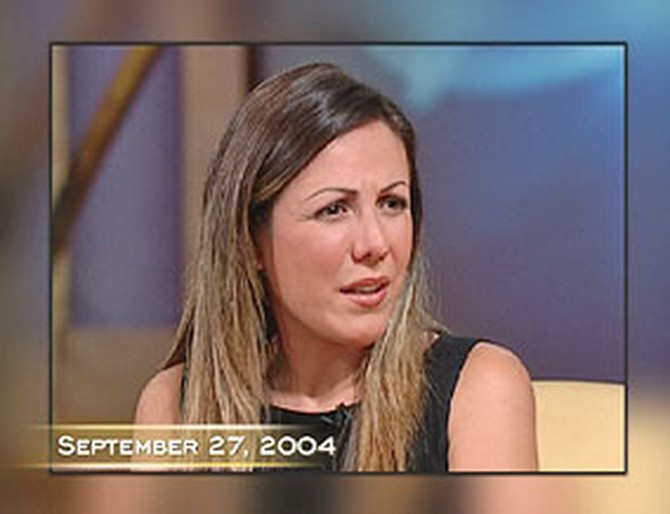
When Amy was a guest on The Oprah Winfrey Show in 2004, she revealed that she's never spoken to Mary Jo—even after Mary Jo wrote a letter asking for Amy's early release from prison. Oprah asked Amy to speak directly to Mary Jo. "I take full responsibility for what I did to her, and I'm very, very, deeply sorry. Sorry...it doesn't even sound like enough to say," Amy said. "At the time I thought, 'Well, okay, I shot her, but she's alive and she's healed, so she'll go on.' I didn't realize fully what I took from her emotionally and what I took from her children and her parents and everybody that loved her."
Mary Jo says that while Amy's choice of words were fine, she doesn't believe that Amy truly understands why she was apologizing. "There's no emotion. There's no real feeling," she says. "I believe with all my heart now she is sorry. I know she feels terrible, and she really is remorseful. But I don't think she's ever gotten it. 'What on Earth made me at 17 years old walk up to that lady's house and put a bullet in the side of her head?' She just won't go there."
In another comment, Amy made a joke about what she's learned from her experience: "Obviously, it's not nice to shoot people."
This really made Mary Jo upset. "I'm not a joke," she says.
Mary Jo says that while Amy's choice of words were fine, she doesn't believe that Amy truly understands why she was apologizing. "There's no emotion. There's no real feeling," she says. "I believe with all my heart now she is sorry. I know she feels terrible, and she really is remorseful. But I don't think she's ever gotten it. 'What on Earth made me at 17 years old walk up to that lady's house and put a bullet in the side of her head?' She just won't go there."
In another comment, Amy made a joke about what she's learned from her experience: "Obviously, it's not nice to shoot people."
This really made Mary Jo upset. "I'm not a joke," she says.
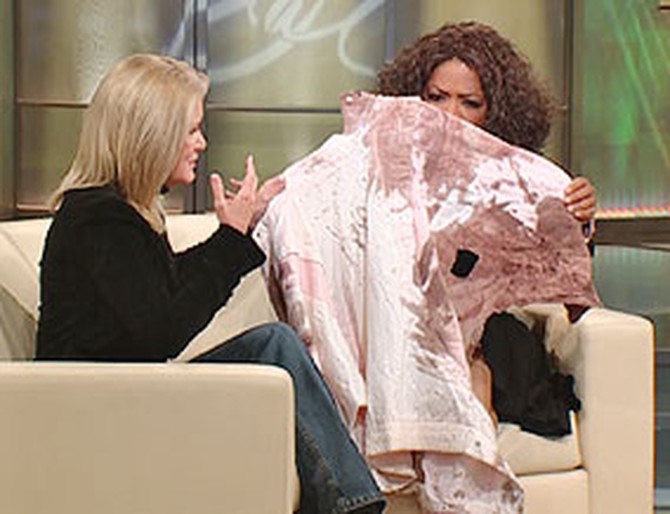
Mary Jo brought along the blood-soaked jacket she was wearing the day Amy shot her.
"It's something that I've kept in a box with everything else to show that I am a real human being," Mary Jo explains. "I was really left for dead on my front stoop of my own house."
At the time of the shooting, investigators had to cut out a large piece from the coat. They were sampling DNA in the very possible event that Mary Jo had died. Doctors told her family, "We don't think she's going to make it."
Looking at her stained jacket, Mary Jo says, "I'm glad that I'm alive, because I really shouldn't be because I lost so much blood."
"It's something that I've kept in a box with everything else to show that I am a real human being," Mary Jo explains. "I was really left for dead on my front stoop of my own house."
At the time of the shooting, investigators had to cut out a large piece from the coat. They were sampling DNA in the very possible event that Mary Jo had died. Doctors told her family, "We don't think she's going to make it."
Looking at her stained jacket, Mary Jo says, "I'm glad that I'm alive, because I really shouldn't be because I lost so much blood."
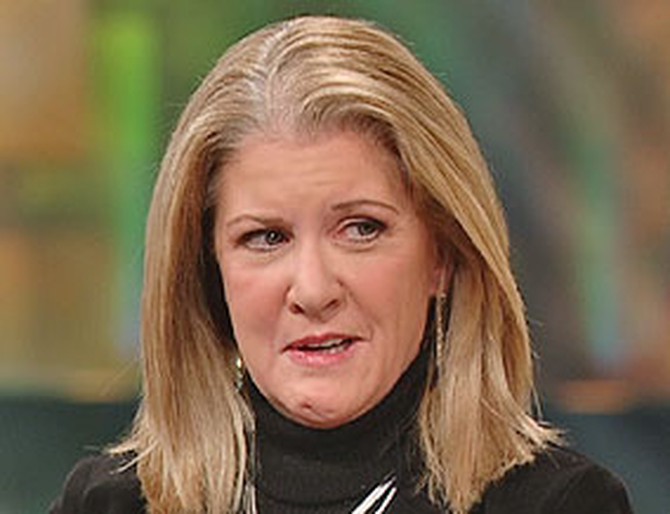
Just as Amy was given the opportunity to address Mary Jo, Mary Jo wants to ask a question of Amy. "It's basically what I've always asked: 'Why?' And don't tell me because Joey made you do it. Come on, you're 31 years old."
After struggling through a very difficult physical recovery, Mary Jo says she had to go through an equally difficult emotional recovery. In her time spent in therapy, she says she came to some understanding about what Amy's motivations could possibly have been. "I believe that there was a rage inside of her."
"When I started getting counseling I was like: Why would someone do this to me? I'm a nice person. Why would somebody try to kill me? And we talked about families. My family and my parents and her upbringing versus my upbringing."
Mary Jo says she believes that she and Joey represented both mother and father figures to Amy as she tried to replace the negatives in her life. "Somehow this got misdirected so that she could come to my house and do what she did. It was more an inner rage at a mother figure, and I was a mother figure. It wasn't so personal."
After struggling through a very difficult physical recovery, Mary Jo says she had to go through an equally difficult emotional recovery. In her time spent in therapy, she says she came to some understanding about what Amy's motivations could possibly have been. "I believe that there was a rage inside of her."
"When I started getting counseling I was like: Why would someone do this to me? I'm a nice person. Why would somebody try to kill me? And we talked about families. My family and my parents and her upbringing versus my upbringing."
Mary Jo says she believes that she and Joey represented both mother and father figures to Amy as she tried to replace the negatives in her life. "Somehow this got misdirected so that she could come to my house and do what she did. It was more an inner rage at a mother figure, and I was a mother figure. It wasn't so personal."
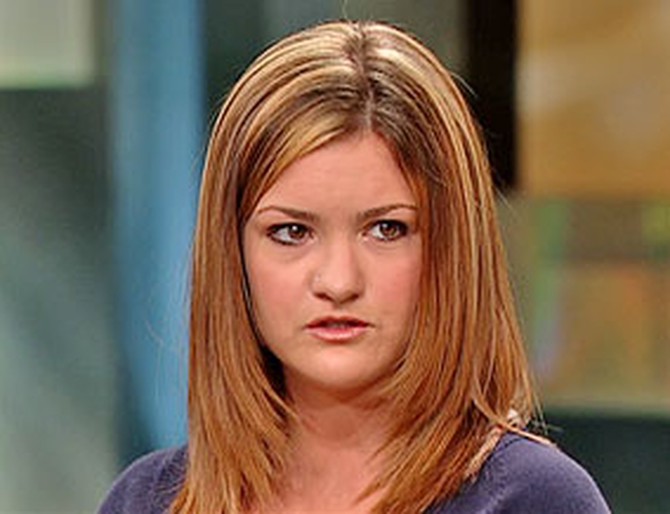
When the incident occurred, Mary Jo's daughter, Jessica, was just your typical 9-year-old in school. On the day her mom was nearly killed, Jessica was pulled out of her third grade class and told that her mother had fallen on a nail. Jessica was eventually told the truth, but she says it took time before she fully understood the seriousness of the situation.
"It was still all fun and games to me," Jessica says. Amid the media frenzy, she says, "I was doing cartwheels on the front lawn, and reporters would be like, 'Excuse me, honey, we're trying to film a live segment here. Can you not do that?' And I'm like, 'Excuse me, Mr. Reporter. I'm trying to play on my front lawn. You can move!'"
Jessica says the family tragedy had a lasting impact. "Of course, like everything, it has its goods and its bads," she says. "And the negative...I feel like I was robbed of a childhood. ... My parents did a very good job of keeping me out of things. I still did dance, basketball, all that kind of stuff. It was definitely emotionally draining. And I think it was even harder for me when I got older and was capable of thinking from someone else's point of view."
As for her notorious last name, Jessica says the jokes only made her stronger. "As much as that was bad and hard, I kind of took it and reversed it," Jessica explains. "Rather than hiding and being scared of who I was and being ashamed of what I was, it gave me the drive to succeed."
"It was still all fun and games to me," Jessica says. Amid the media frenzy, she says, "I was doing cartwheels on the front lawn, and reporters would be like, 'Excuse me, honey, we're trying to film a live segment here. Can you not do that?' And I'm like, 'Excuse me, Mr. Reporter. I'm trying to play on my front lawn. You can move!'"
Jessica says the family tragedy had a lasting impact. "Of course, like everything, it has its goods and its bads," she says. "And the negative...I feel like I was robbed of a childhood. ... My parents did a very good job of keeping me out of things. I still did dance, basketball, all that kind of stuff. It was definitely emotionally draining. And I think it was even harder for me when I got older and was capable of thinking from someone else's point of view."
As for her notorious last name, Jessica says the jokes only made her stronger. "As much as that was bad and hard, I kind of took it and reversed it," Jessica explains. "Rather than hiding and being scared of who I was and being ashamed of what I was, it gave me the drive to succeed."
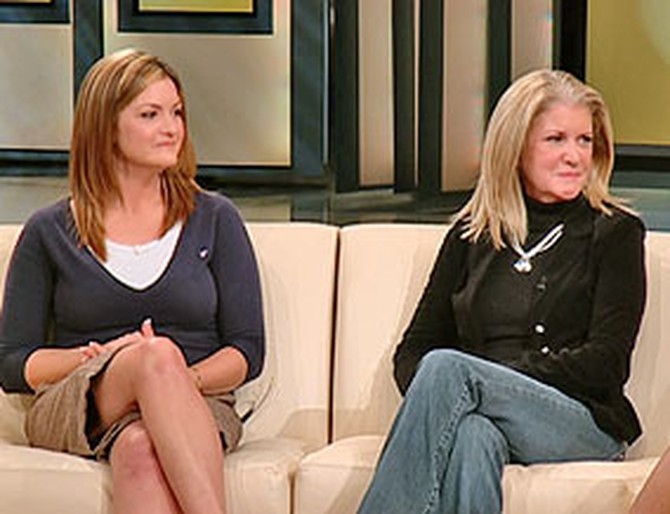
Jessica admits it was difficult watching Amy's interview on The Oprah Show. "I don't see emotion coming from her," Jessica says. "I don't see sincerity."
What does Jessica have to say to Amy now? "I just really want to tell her to just get to know yourself," she says. "I feel like she's afraid to do that. She's afraid to really go down deep and answer the hard questions. But everyone needs to do that to move on."
What does Jessica have to say to Amy now? "I just really want to tell her to just get to know yourself," she says. "I feel like she's afraid to do that. She's afraid to really go down deep and answer the hard questions. But everyone needs to do that to move on."
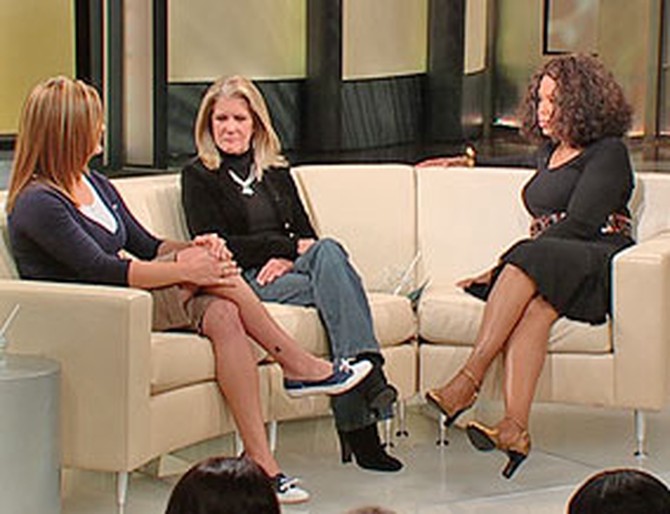
Many have wondered why Mary Jo didn't leave Joey. Mary Jo explains the combination of factors that made her stay. "I guess at the beginning, let's face it, I was almost dead," she explains. "That's certainly not the time—you're not feeling your best when you get home."
While the public obsessed about the affair, Mary Jo says she was simply trying to move on with the life she knew. "The kids were little...I was raised Irish Catholic...I didn't know anybody who ever got a divorce," she says. "My anger—and I look at it now and I cringe because I was so angry back in the day—was that it turned into this, 'Did he or didn't he?' Instead of, 'Hey, what about me?'"
Mary Jo spent a year working to release Amy Fisher from prison as part of her own healing process. But she says Joey didn't lend support when she needed him most. At 45, she says she had an aha! moment that would end her marriage. "Now, for once in my life, I'm doing something for me to make me feel better about me, and you don't like it," Mary Jo says of her ex-husband. "And that was it. And I said, 'I've got to go.'"
While the public obsessed about the affair, Mary Jo says she was simply trying to move on with the life she knew. "The kids were little...I was raised Irish Catholic...I didn't know anybody who ever got a divorce," she says. "My anger—and I look at it now and I cringe because I was so angry back in the day—was that it turned into this, 'Did he or didn't he?' Instead of, 'Hey, what about me?'"
Mary Jo spent a year working to release Amy Fisher from prison as part of her own healing process. But she says Joey didn't lend support when she needed him most. At 45, she says she had an aha! moment that would end her marriage. "Now, for once in my life, I'm doing something for me to make me feel better about me, and you don't like it," Mary Jo says of her ex-husband. "And that was it. And I said, 'I've got to go.'"
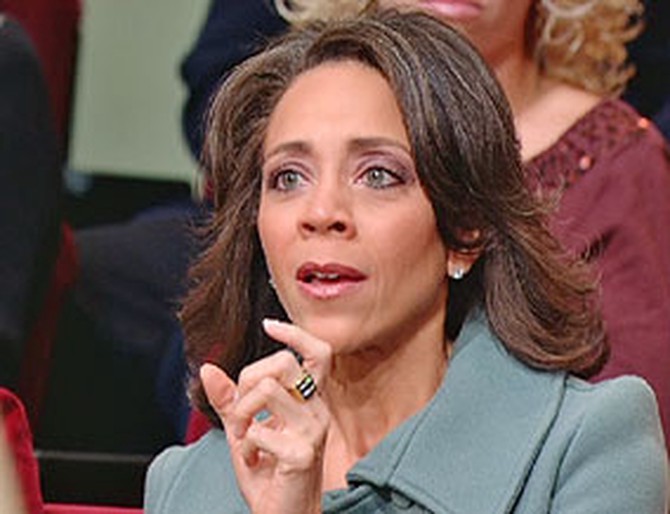
Dr. Robin Smith applauded Mary Jo for finding her way to healing. "It's such a great model for women who are out in the world," Dr. Robin says, "who haven't been shot in the head, but they've been shot in their spirits. They've been injured, they've been betrayed and they haven't been able to find a way to create a new life. So you're a great example."
Though Mary Jo and her ex-husband are divorced, Dr. Robin says he's not off the hook. "Amy did a lot of things that were horrific, horrible and bad," she says. "What we haven't spoken about here today is the issue of Joey and how harmful and destructive a person he is."
"Your ex-husband—that's who owes you," Dr. Robin says.
Though Mary Jo and her ex-husband are divorced, Dr. Robin says he's not off the hook. "Amy did a lot of things that were horrific, horrible and bad," she says. "What we haven't spoken about here today is the issue of Joey and how harmful and destructive a person he is."
"Your ex-husband—that's who owes you," Dr. Robin says.
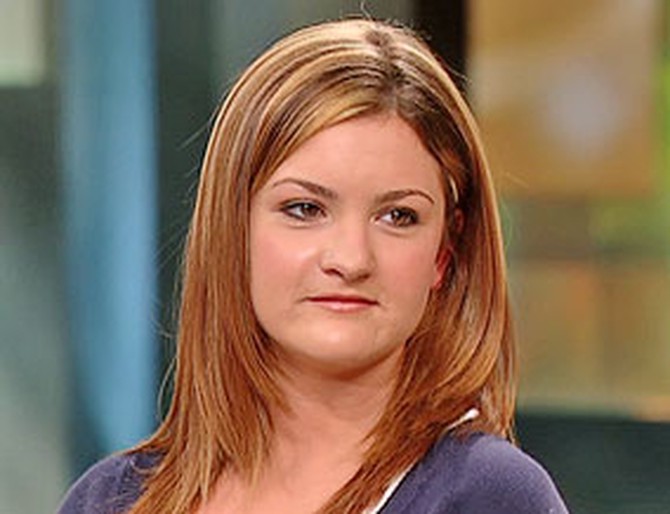
Dr. Robin challenged Jessica to question her father's actions. "Your dad owed you to protect you, to honor you," she says. "To not just honor your mother and the marital vows, but to keep his children safe."
In fact, Dr. Robin says, Jessica needs to accept that her father didn't always protect his family—he hurt them, too. "Part of being 'Daddy's little girl' is Daddy would have made much better choices," she says. To avoid making the same mistakes as her mother, Dr. Robin says Jessica should "live as much in the truth and to remove yourself from some of the things that we use as defenses because the truth is painful."
In fact, Dr. Robin says, Jessica needs to accept that her father didn't always protect his family—he hurt them, too. "Part of being 'Daddy's little girl' is Daddy would have made much better choices," she says. To avoid making the same mistakes as her mother, Dr. Robin says Jessica should "live as much in the truth and to remove yourself from some of the things that we use as defenses because the truth is painful."
Published 11/16/2005

